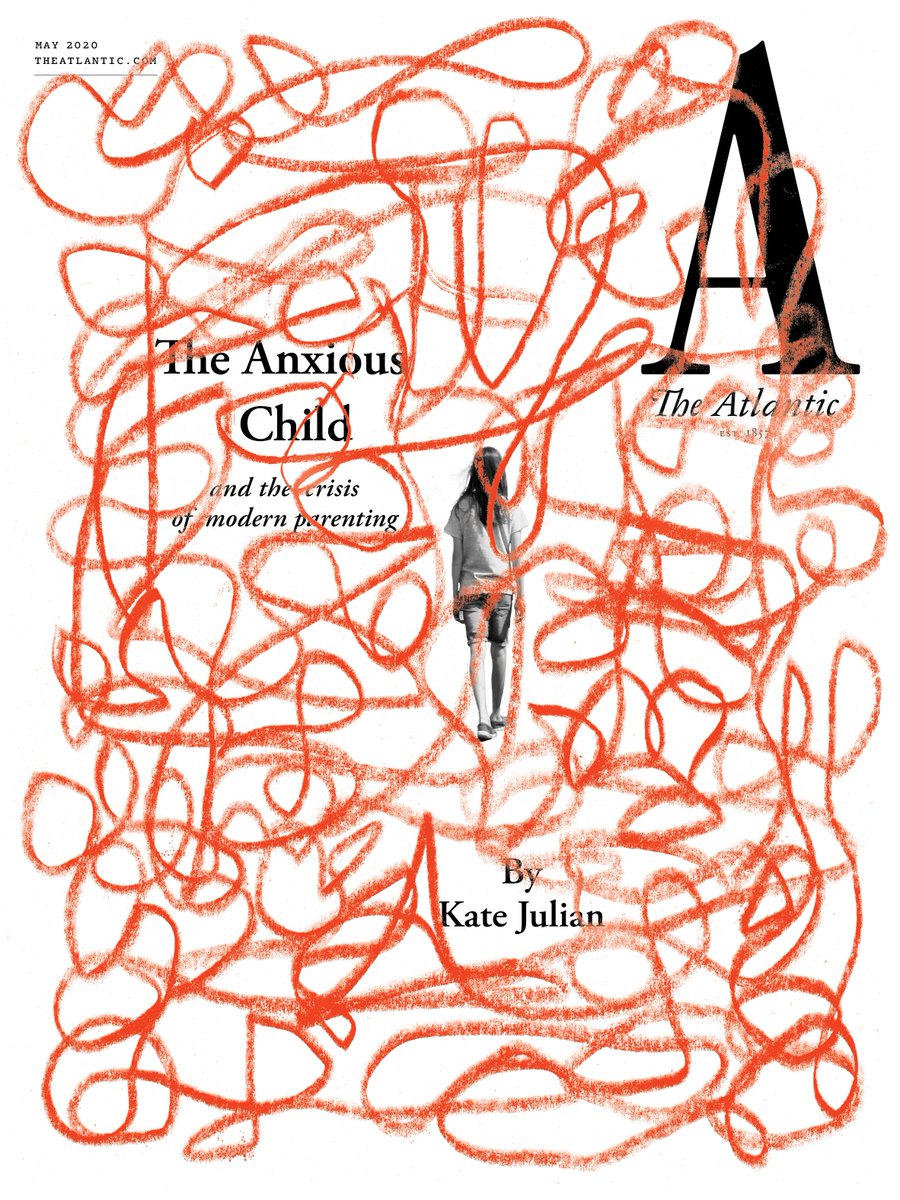1/ Before COVID-19 sent families across the U.S. into lockdown, I began reporting a story for @theatlantic about children’s declining mental health, focusing on anxiety. What I learned was alarming but also weirdly hopeful—and very relevant to this moment: https://www.theatlantic.com/magazine/archive/2020/05/childhood-in-an-anxious-age/609079/">https://www.theatlantic.com/magazine/...
2/ For years, signs have been gathering that the kids are not all right: From 2007 to 2017, suicides rose more than 50 percent among 10-to-24-year-olds and, in recent years, doubled among children ages 5 to 11. One in 5 teen girls experienced major depression in 2017.
3/ Why is all this happening? Experts have pointed to various factors, from smartphones to the opioid crisis to inequality. “There are many theories, but I don’t understand it fully,” one child psychiatrist told me of the rise in suicides. “I don’t know that anyone does.”
4/ What should we do in response? How can we better prepare children for a world that’s more psychologically taxing than the late-20th-century one into which we were born? I have been thinking about this a lot lately, because I have two kids, ages 6 and 10.
5/ As I interviewed experts, a unified message emerged about when mental-health problems start and how we might fortify children psychologically. When: childhood—often early childhood. How: treatment of anxiety, which is a gateway to other mental disorders.
6/ Anxiety was a fact of 21st-century life even before COVID-19. By the mid-2010s, more than a fourth of U.S. doctor visits ended with a prescription for anti-anxiety medication. A 2018 study found that in just five years, anxiety-disorder diagnoses among kids were up 17 %.
7/ What surprised me: Childhood anxiety is much more responsive to treatment than the conditions to which it can lead, such as depression and addiction. The bad news: Today’s overparenting is at odds with what anxiety experts recommend.
8/ That’s partly because we misunderstand anxiety. Anxiety disorders are worth preventing, but anxiety itself is a normal response to stress. It is uncomfortable, but children can learn to tolerate it. Far too often, though, we try to insulate our kids from distress entirely.
9/ Anxiety also travels in families, both because it has a genetic component and because it is contagious. Today, we see a vicious cycle in which adult stress leads to child stress, which leads to more adult stress, which leads to an epidemic of anxiety at all ages.
10/ More happily, interrupting this cycle reduces stress for everyone. An exciting new program at Yale is successfully treating children’s anxiety by treating parents instead of children. The result is less overparenting and kids who feel more competent. @YaleCSC
11/ To safeguard kids’ mental health, we must also work to reduce poverty, deep trauma (beyond normal stresses) in kids’ lives, and increase mental-health care. As Vann R. Newkirk II writes, this has become more urgent than ever during a pandemic: https://www.theatlantic.com/health/archive/2020/03/what-coronavirus-will-do-kids/608608/">https://www.theatlantic.com/health/ar...
12/12 To be clear, treating childhood anxiety is not a cure-all for mental illness. What we need to recognize, though, is that our current approach to raising children doesn’t reduce human vulnerabilities. It exacerbates them—for both kids and adults. https://www.theatlantic.com/magazine/archive/2020/05/childhood-in-an-anxious-age/609079/">https://www.theatlantic.com/magazine/...

 Read on Twitter
Read on Twitter




